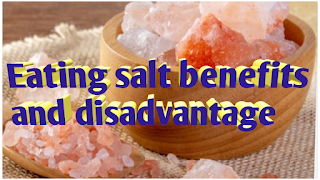What is salt
Salt, scientifically known as sodium chloride (NaCl), is a chemical compound that is a necessary nutrient for human health and has numerous applications in various industries. Here are some key points about salt----
1. Composition
Salt is composed of two elements - sodium (Na) and chlorine (Cl). The chemical formula for salt is NaCl, where one sodium atom is bonded to one chlorine atom.
2. Occurrence
Salt is found naturally in the earth's crust, in the ocean, and in some inland bodies of water. It can also be produced through the evaporation of seawater or the mining of salt deposits.
3. Culinary uses
Salt is a common seasoning used in cooking and food preparation. It enhances flavor, preserves food, and can be used for various culinary purposes, such as pickling, curing, and baking.
4. Nutritional importance
Salt is an essential mineral for the human body. It helps maintain fluid balance, regulates blood pressure, and supports nerve and muscle function. However, excessive intake of salt can lead to health issues like high blood pressure.
5. Industrial applications
Salt has numerous industrial applications, including the production of chemicals, the treatment of water, the manufacture of glass, and the processing of certain metals.
6. Types of salt
There are different types of salt, such as table salt, sea salt, Himalayan salt, and kosher salt, which vary in their processing, texture, and mineral content.
benefits of eating salt
Here are some potential benefits of consuming an appropriate amount of salt--
1. Regulates fluid balance
Salt helps the body maintain the right balance of fluids, which is important for overall health.
2. Supports nerve and muscle function
Salt is necessary for proper nerve transmission and muscle contraction.
3. Aids digestion
Salt helps the body produce digestive juices, including stomach acid, which is important for breaking down food.
4. Supports adrenal function
Salt helps the adrenal glands function properly, which is important for managing stress.
5. Prevents hyponatremia
Extremely low salt levels can lead to a condition called hyponatremia, which can be dangerous.
6. Supports bone health
Salt may help the body absorb and utilize calcium, which is important for maintaining strong bones.
However, it's important to consume salt in moderation, as excessive salt intake has been linked to high blood pressure, increased risk of heart disease, and other health issues. The recommended daily intake is generally around 2,300 mg per day for most healthy adults. Consult your healthcare provider if you have concerns about your salt intake.
Disadvantages of eating salt
Here are some of the main disadvantages of eating too much salt---
1. High Blood Pressure
Excess salt intake can lead to high blood pressure, which increases the risk of heart disease and stroke.
2. Kidney Problems
The kidneys have to work harder to filter out excess sodium, which can lead to kidney stones and even kidney disease over time.
3. Fluid Retention
Salt causes the body to hold onto more water, leading to swelling and bloating.
4. Osteoporosis
High salt intake can cause the body to lose more calcium, leading to weakened bones and an increased risk of osteoporosis.
5. Stomach Cancer
Some research has linked high salt intake to an increased risk of stomach cancer.
6. Macular Degeneration
Excessive salt consumption may be a risk factor for developing age-related macular degeneration, a leading cause of vision loss.
7. Increased Thirst
Eating a lot of salt can make you feel thirsty more often as your body tries to dilute the excess sodium.
8. Increased Sodium Sensitivity
Over time, eating a high-salt diet can make you more sensitive to the effects of salt, amplifying some of these negative health impacts.
The recommended daily limit for sodium is generally less than 2,300 mg per day. Reducing salt intake can have significant benefits for your overall health.





No comments:
Post a Comment